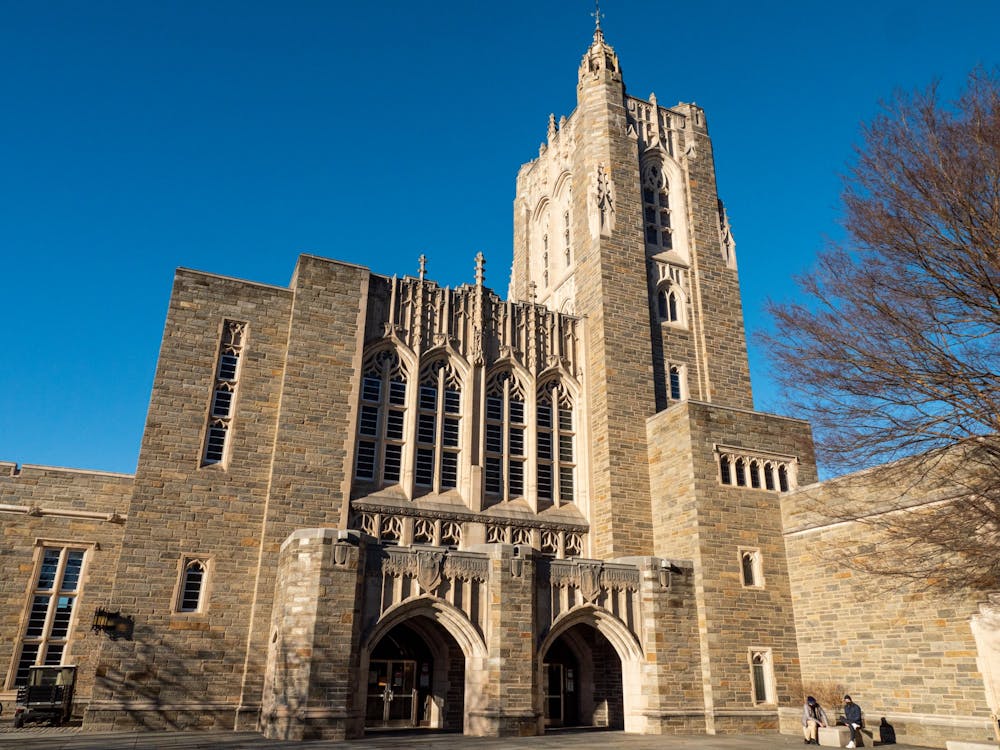During the week of Oct. 11, Princeton celebrated the fourth and fifth Nobel prizes won by Princeton affiliates in a single year. This achievement speaks volumes about the quality of a Princeton education — one that fuels passion, celebrates excellence, and promises success no matter what path you take.
President Christopher Eisgruber ’83 echoed this premise of excellence in his interview with The Atlantic: “The idea of a place like Princeton is that you can identify young people who have extraordinary talent and will benefit from an intensive academic experience.” Extraordinary is a big word that conveys immense expectations: accepted students are already extraordinary individuals, and with an “intensive” Princeton education, they are set up for success.
It is not a surprise, then, that failure is a taboo topic among different social circles here. It is feared and to be avoided at all costs. Though seemingly counterintuitive, I argue that Princeton students, who are often defined by their successes, need to fail early and fail often. Meanwhile, Princeton as an educational institution needs to create an environment where students can fail without fear.
For the two most recent admissions cycles, Princeton accepted 3.98 percent and 5.55 percent of its application pool for the Class of 2025 and 2024, respectively. Beating these incredible odds to become a Princeton Tiger, members of the first-year class walk through FitzRandolph Gate for the first time knowing that they truly are the cream of the crop. What is not expected from them is a failure of any kind.
So when students encounter their first failures here, it hurts. Whether it is being rejected from a selective club, getting an ugly grade, or being denied an internship, students belatedly realize that failure at Princeton is inevitable, and yet they are not mentally prepared to deal with it.
This fear of failure among the student body is further exacerbated by the rigorous nature of a Princeton education, one that leaves no room for reflection and recovery from failures. Semesters at Princeton are 15 weeks long; this extremely fast-paced semester leaves no time for rebound if a student gets bad grades on major exams, which often count toward 20–40 percent of their entire grade. With this schedule, even when students are open to the idea of failing, they do not have enough time to bounce back from the incident, let alone extrapolate important lessons from it.
It is also not hard to realize that while opportunities to be involved on campus are endless, they are also measurements of students’ capabilities. Outside of the classroom, anything can turn into a competition, from the number of selective clubs one is in, the prestige of a summer internship, to the amount of sleep one gets. When students are in an environment where one’s success can feel like another’s failure, expecting them to detach their self-worth from their achievements (or lack thereof) and to truly embrace failure when everyone else seems to be moving forward is a tall order.
While this culture of failure-fearing and competitiveness stems partly from the naturally driven personalities of most Princeton students, the University should also foster a learning environment that provides a safety net for students when they fail.
Granted, the University Student Government (USG) has initiated certain efforts towards this purpose. One such effort is the student-driven Princeton Perspective Project (PPP) which aims to defy the notion of effortless perfectionism — the “illusion that other's paths to success and fulfillment are easy, uncomplicated, and free of failure.”
I talked to Mayowa Oke ’22, a former Ambassador of the Princeton Perspective Project to learn about the University’s role in the project. According to Oke, while there were mentors, faculty members, and hefty funding available at their disposal, PPP activities in the past years were mostly student-led.
Even though PPP has undoubtedly helped more students realize that it is okay to fail at Princeton, it still lacks a top-down approach with concrete policy changes that are necessary to create substantial impacts on campus and truly facilitate the systematic transition from a success-only to failure-friendly environment.
It is also important, however, to acknowledge that the pervasiveness of these issues is not Princeton-specific. There are several accounts regarding how the same problem also plagues other top institutions like Harvard and Stanford, where accepted students are also under a constant fear of failure. Nevertheless, that does not mean that we should wait for someone else to take the initiative.

In this regard, Oke believes that the University needs to utilize a truly human-first approach. Through more tangible regimes such as bolstering the mental health support system or researching ways to make the teaching and evaluation system less credentialist, the University can more easily encourage students to take intellectual risks — knowing that even if they fail, they will have the time and resources to stand back up.
The Princetonians I have met during my short time here are nothing short of extraordinary. Yet, Princeton needs to create a safe environment where students know that they cannot be extraordinary without first learning to embrace their ordinary, fallible selves.
Audrey Chau is a first-year from Ho Chi Minh City, Vietnam. She can be reached at audreychau@princeton.edu.








